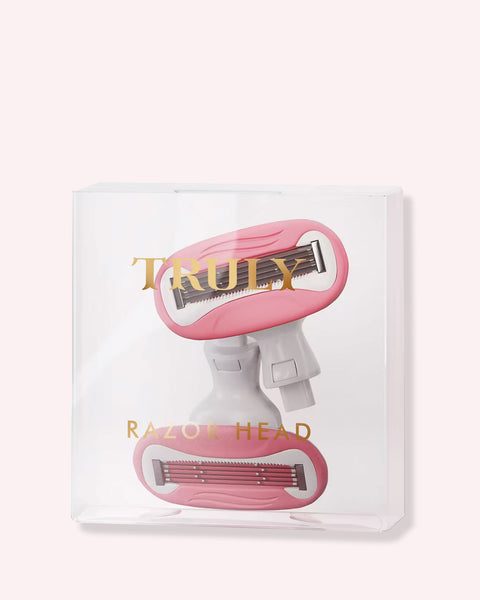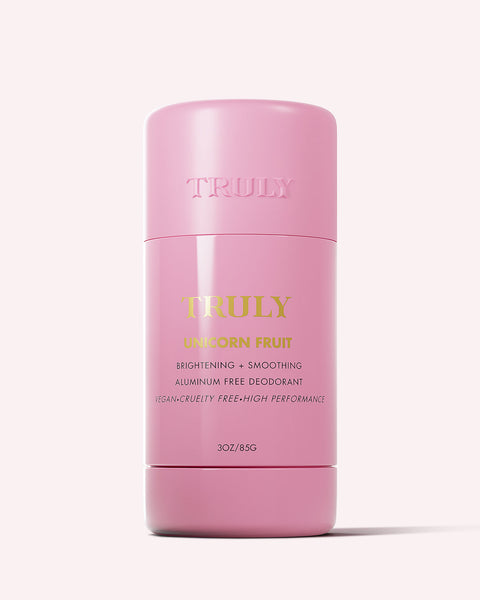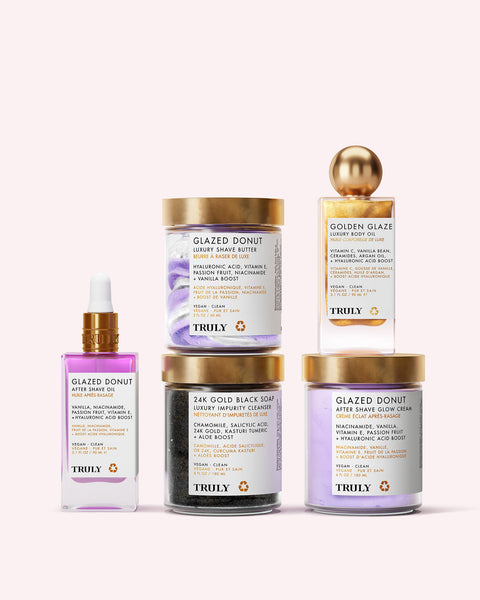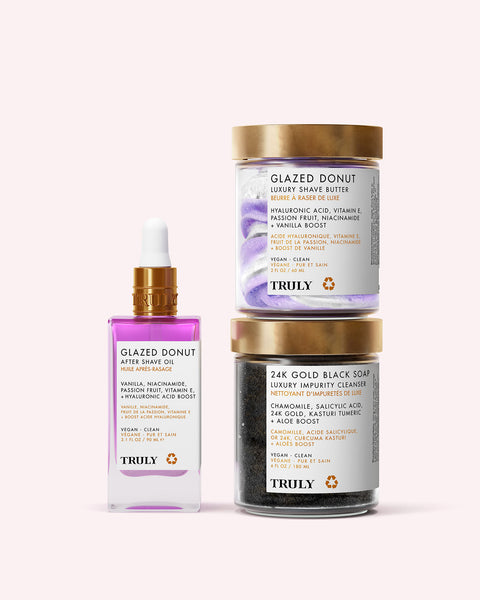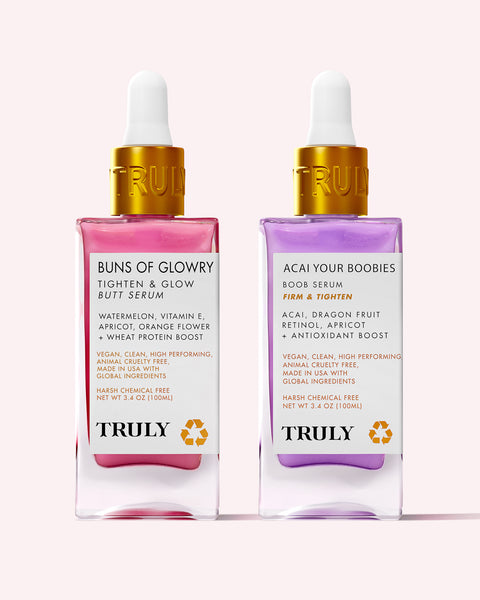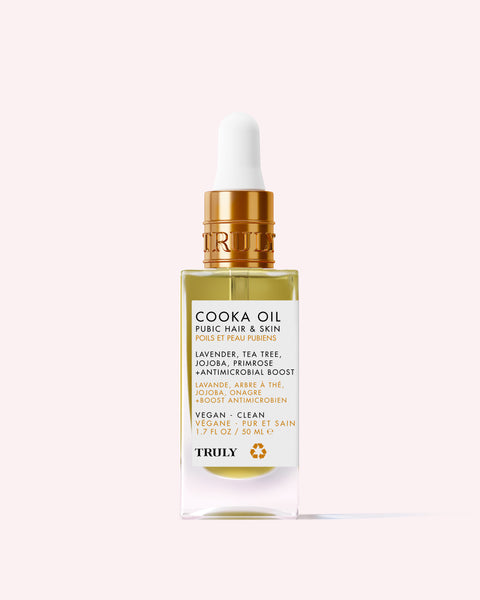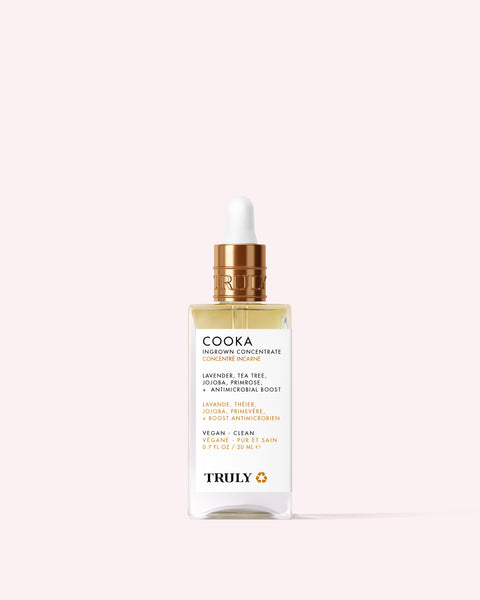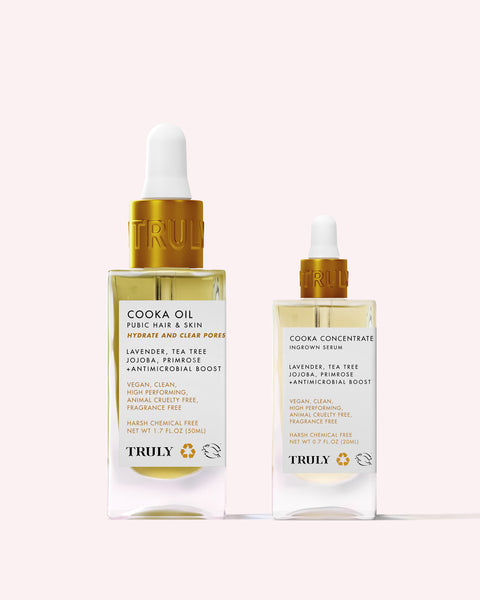The Ingredients In your Skincare That Could Be Causing Breakouts
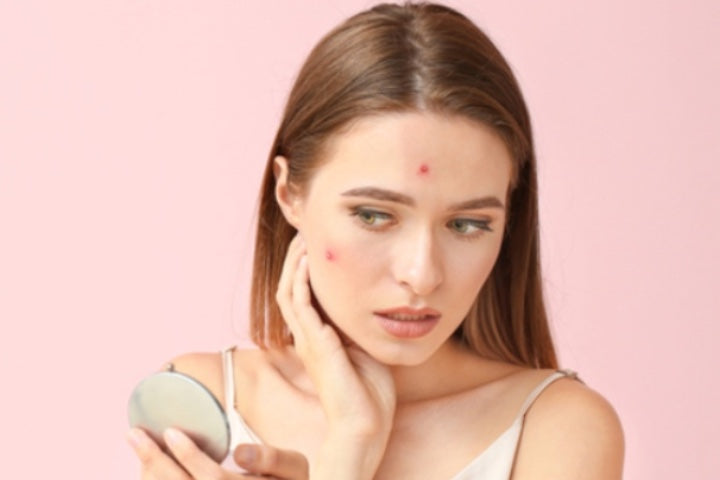
Got acne-prone skin? The solution might lie in the ingredients list on your favorite skincare products. According to research, many of the ingredients lurking in your cleansers, lotions, and toners are notorious for irritating the skin, clogging pores, and triggering breakouts.
Besides looking for the terms "non-comedogenic" and "oil-free" on beauty product labels, start searching for these common ingredients that may cause acne.
Silicone
Silicone is an ingredient to stay away from in skincare products if you're prone to blackheads, whiteheads, and pustules.
" can be dehydrating and pore-clogging," says Deanne Robinson, M.D., FAAD, a dermatologist at Modern Dermatology. "A plumping and hydrating ingredient to look for instead would be hyaluronic acid."
That's because silicone is an occlusive skincare ingredient, meaning it's rich and thick, and usually too heavy for acne-prone skin types. While occlusives work wonders for dry skin thanks to their ability to prevent moisture loss, they're not ideal for pimple-prone skin.
Swap for hyaluronic acid: Cream Skin Face Moisturizer

Acetylated Lanolin
Lanolin is a natural ingredient used in cosmetics and skincare products to provide softness and moisturization. The only problem is: it's highly comedogenic! Since lanolin is the skin oil, or sebum, of sheep, it's extremely comedogenic and can cause more blemishes. A moisturizing ingredient to look for instead would be coconut oil.
Swap for coconut oil: GLOAT Juicy Lip Oil

Benzaldehyde
Benzaldehyde is an added fragrance used in beauty products to give the product a nice scent. You'll find it in everything from face washes to shampoos. The only problem is, it can clog the pores and irritate the skin, which can cause breakouts. You're more prone to this if you have sensitive skin. Enjoy fresh-smelling scents with natural fruit extracts such as blueberry, orange, and melon.
Swap for watermelon extract: Buns of Glowry Butt Exfoliator

Isopropyl Palmitate
Isopropyl palmitate is a common ingredient typically found in lotions and moisturizers to smooth out dry skin. As effective as it is at treating skin dryness, it's rated as a 4 on the comedogenic scale. In other words, it's highly likely to cause acne breakouts -- particularly if you already have acne-prone skin.
Isopropyl palmitate is known to cause clogged pores, whiteheads, blackheads, and skin irritation if overused. It is better to use a more nourishing skin hydrator that won't clog pores, such as jojoba oil.
Swap for jojoba oil: Pineapple Haze Sensitive Skin Balm

D & C Red
Listed as "D & C Red" on the label and followed by a number, this is a skincare ingredient to watch out for. D & C # 19 has been banned.
You can, however, still find the following on the market: D & C Red # 3, D & C Red # 21, D & C Red # 30, D & C Red # 36, D & C Red # 40, D & C Red #27. If you see any of these featured on an ingredients list, return the product to the shelf. These are added to give color to products, specifically makeup products, and are highly comedogenic ingredients.
Lauric Acid
Lauric acid is another ingredient that's listed as high as 4 on the comedogenic scale. It's a fatty acid used in hydrating formulas such as lotions and creams. Since it's so high in the comedogenic scale, that means it's very likely to cause pimples on oily and acne-prone skin types. Even if you're not prone to breakouts, you should still be careful with products containing lauric acid as it may still cause blemishes.
Choose a more hydrating yet skin-friendly ingredient such as shea butter, which is excellent for adding moisture to thirsty skin.
Swap for shea butter: Unicorn Fruit Whipped Body Butter

Sodium Lauryl Sulfate
Sodium Lauryl Sulphate is a chemical surfactant that is widely used in the cosmetics industry. SLS can be found in a range of products, including cleanser, exfoliants, shampoos, lip balms, and even sunscreens.
These surfactants strip the skin of natural oils, which leads to irritation, dry skin, and in some cases, even allergic reactions. It is not uncommon for people who have used products containing this ingredient to experience itchy skin, eczema, and dermatitis. They have also been shown to trigger blemishes in sensitive skin types. Drop products containing SLS from your skincare routine asap.
Sodium Chloride
A fancy name for salt, sodium chloride is often added to skincare products as a thickening agent. The only trouble is, it's not so great for acne-prone skin as it's known for clogging pores and causing breakouts, especially around the mouth.
While you'd think salt would have exfoliating properties, don't expect products with sodium chloride to buff away dead skin cells and leave you with clear, glowing skin. SC does quite the opposite. So, the next time you look for a cleanser or toner, scan the ingredients list to check sodium chloride isn't in there!
Wheat Germ Oil
Consumed, wheat germ powder can be very beneficial for your health. Applied topically? Not so much! With wheat germ oil having a comedogenic value of 5, you might want to reconsider wheat germ oil as a skincare product. This oil will do your skin zero favors!
If you're looking for a hydrating, clearing face oil, look for ingredients such as anti-inflammatory hemp, pore unclogging retinol, and moisturizing ginseng.
Swap for hemp oil: Hemp Oil Facial Serum

Essential Oils
Essential oils should be kept for aromatherapy sessions. Unless you want to end up with breakouts and major irritation, we don't recommend using essentials oils in your skincare regimen. Choose a natural, non-irritating emollient instead like avocado oil, olive oil, or almond oil.
Swap for hemp oil: Super Matcha Facial Cleanser

In addition to removing these skin-irritating ingredients from your routine, adopt a regimen designed to tackle acne. Incorporate a cleanser, serum, moisturizer, and spot treatment formulated with acne-fighting ingredients like salicylic acid or benzoyl peroxide. These are known for decongesting pores, eliminating excess oil, and leaving you with a fresh and clear complexion. If you're dealing with acne scars, try using a formula made with vitamin C to lighten discoloration. You should have clear and radiant skin in no time!







